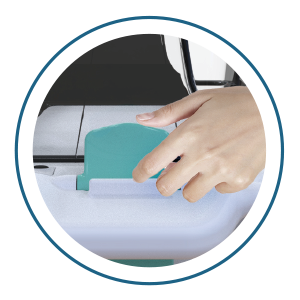Safely Connecting Parents and Newborns
Couplet Care represents change in the standard of care for mothers and birthing parents, newborns, and health care team members -- facilitating breastfeeding, skin-to-skin contact, safe sleep, and patient safety, and clinical efficiency in caring for new families.
The Couplet Care Bassinet is now available for sale and distribution within the United States.














